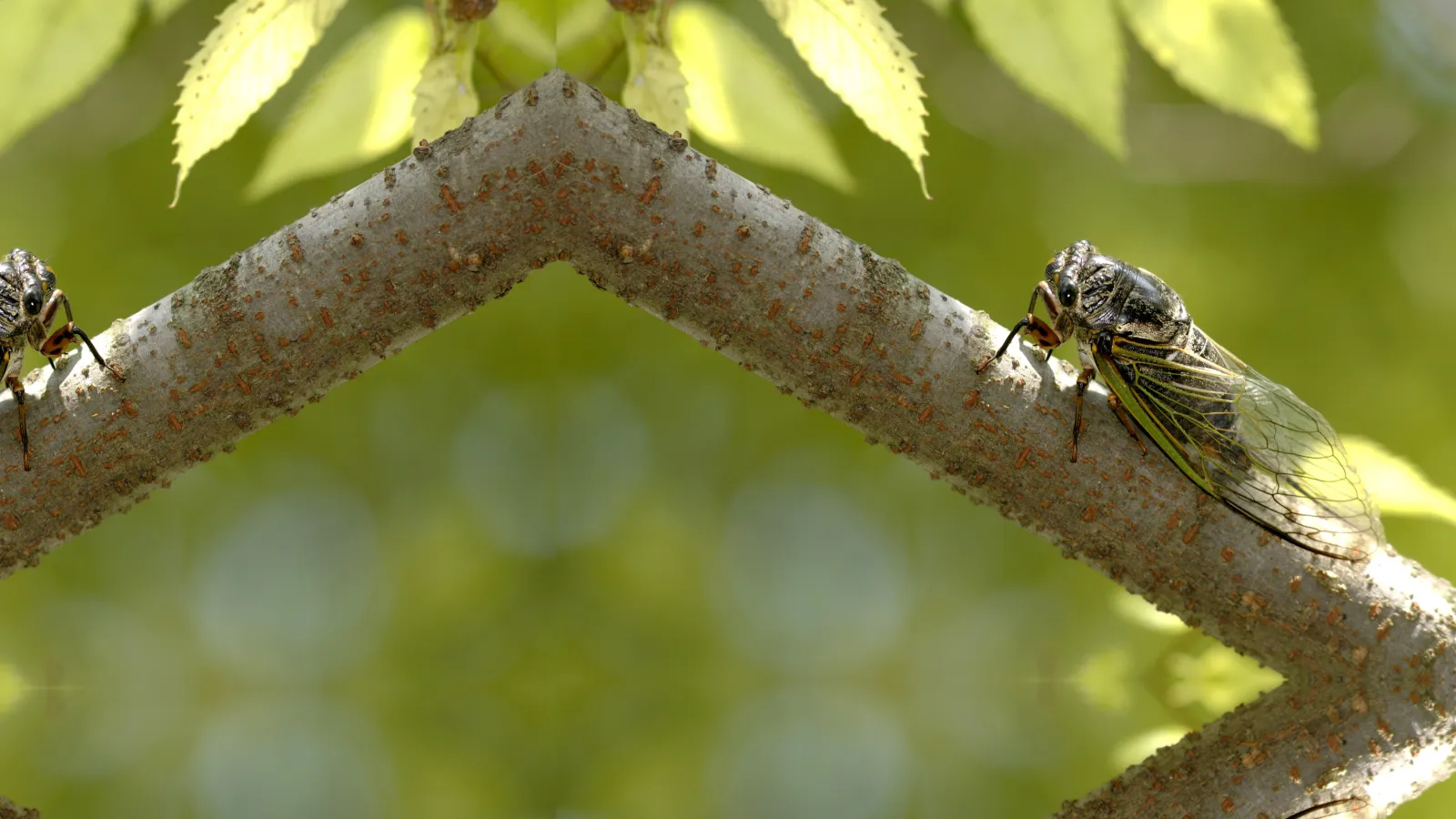
Cicadas
Latin Name: Neotibicen canicularis
What Are Cicadas?
One of the most commonly known cicadas is periodical cicadas. These cicadas spend 99% of their life underground and appear every 13 to 17 years, depending on the region. Both annual and proto-periodical cicadas emerge every year, sometimes emerging together in large numbers. Common annual cicadas in the South Carolina region include the southern grass cicada, Olympic scrub cicada, dog-day cicada, salt marsh cicada, and the swamp cicada. Overall, there are more than 3000 different species of cicadas.
The Lifecycle of a Cicada
Although they may vary in length, every cicada goes through the same three stages of development. Cicadas begin inside an egg that a female adult cicada lays in a groove she carves in a tree branch; a process known as flagging. If you have noticed sporadic, brown patches on the outside of a tree — cicadas may be the culprit. The groove actually causes the branch to die, and its leaves to turn brown.
Once the cicada hatches, it feeds on tree fluids which may cause the insect to resemble a white ant. Once the young cicada can crawl, it falls underground and feeds on the roots of the tree. Depending on the length of the cycle of the cicadas, it may continue to funnel underground and feed on tree roots until it is ready to emerge.
Cicadas emerge from the ground as nymphs, immediately shedding their exoskeleton. After shedding, the cicadas wait for their wings and body to fully develop then begin their adult life as imagoes. Adult cicadas will live for about four to six weeks. Once above ground, females will mate with the males beginning the cycle again.
Why Are Cicadas So Loud?
You're probably familiar with the high-pitched screeching sound that cicadas make. The world's loudest cicada was recorded at 106.7 decibels, with a record of 105.9 decibels in North America. When cicadas convene, they can reach around 90 decibels — similar to a gas-powered mower.
Male cicadas sing to attract female cicadas for mating. They create this noise by contracting and expanding their tymbal muscle. Essentially, the clicking sound of each rib creates a buzzing noise that is magnified with a large number of cicadas.
Palmetto Exterminators Inc. professionals can help you understand the type of cicadas you may be dealing with and the best course for pest management. Contact Palmetto Exterminators Inc. today and book an inspection!